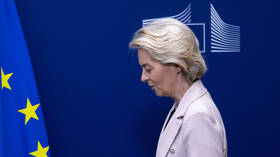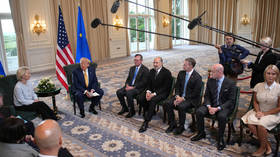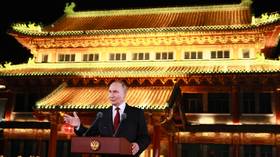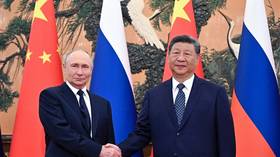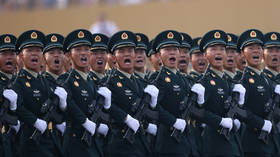Trump announces trade deal with South Korea

President Donald Trump has announced that the US has finalized a trade deal with South Korea that features a 15% tariff on imports from Seoul. In addition, South Korea has pledged $350 billion in US-controlled investments and $100 billion in purchases of American energy products.
Trump boasted in a post on Truth Social on Wednesday that US goods would not be subjected to any reciprocal tariffs, calling it a “Full and Complete Trade Deal” designed to “stabilize economic relations” with a key Asian ally.
South Korean President Lee Jae‑myung described the outcome as the result of careful preparation, claiming in a Facebook post that Seoul “gathered diverse opinions and refined our strategies” before reaching the agreement.
Lee argued that the $350 billion investment in the American economy will promote Korean industrial access to the US market in sectors such as shipbuilding, semiconductors, secondary batteries, biotechnology, and energy.
In 2024, South Korea exported $132 billion in goods to the US – with automobiles, semiconductors, and electronics among the top categories – while US exports to South Korea totaled $66 billion, mainly industrial machinery, oil, and gas, according to Commerce Department data. This created a $66 billion US trade deficit in goods, excluding services, which would narrow the gap when included.
Washington’s agreement with Seoul is part of a broader strategy in which similar deals were secured with the UK, Japan, EU, and other countries ahead of Trump’s self-imposed August 1 tariff deadline. South Korea briefly faced a 25% “reciprocal” tariff in April, but the final 15% rate still exceeds the 10% baseline now applied to many other nations.
The EU faces a similar rate under its deal finalized last week – an arrangement critics described as a unilateral “submission” to US demands. Even a White House advisor characterized it as the bloc “bending the knee” before Trump.
